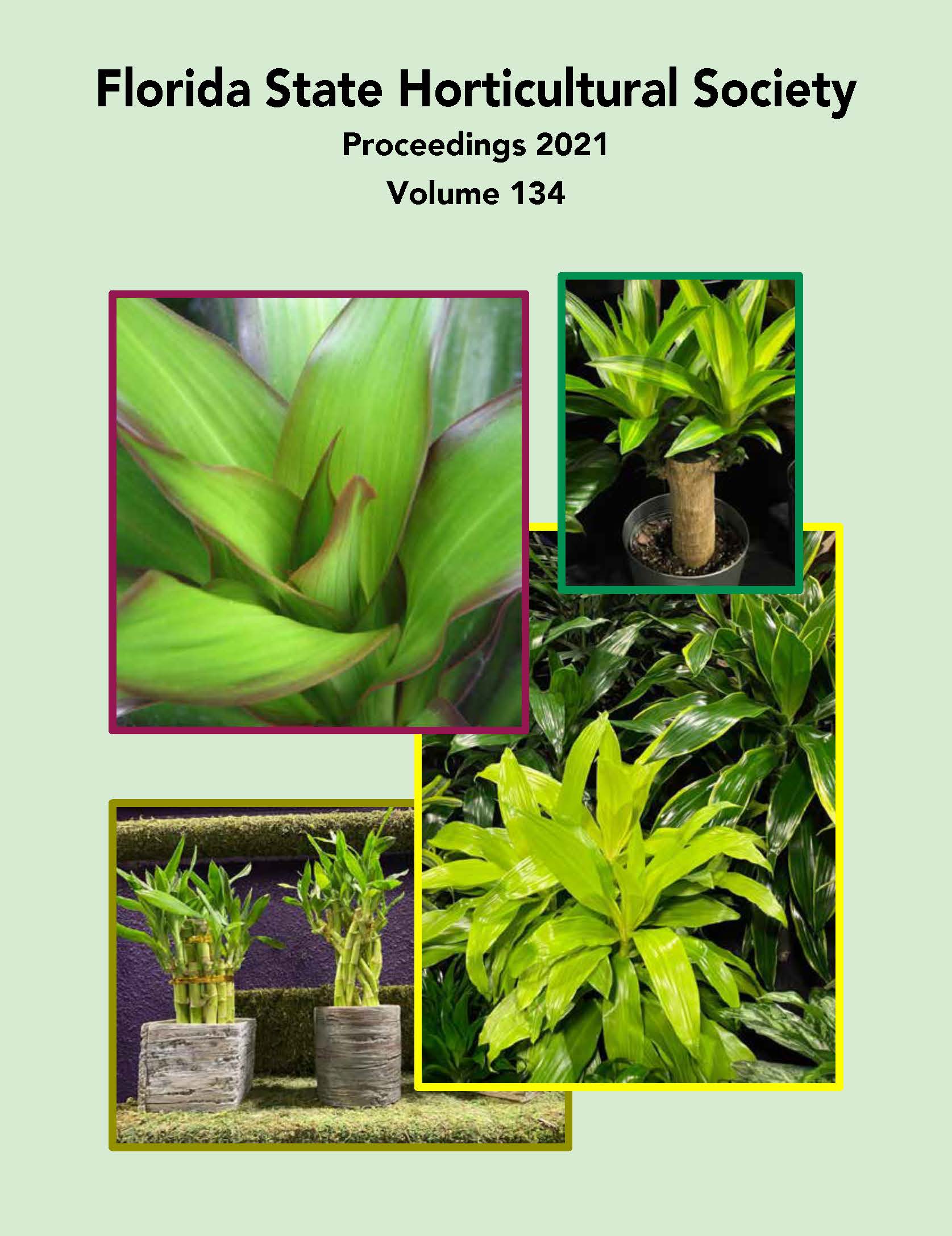Abstract
Banana (Musa spp.) is a tropical fruit crop characterized by optimal growth and fruiting at average temperatures in excess of 80 °F, whereas cold stress has been established to have detrimental effects on growth, yield, and fruit quality. In this study, we accordingly sought to identify diploid banana germplasms with cold tolerance potential. Twelve in vitro growing accessions [Musa acuminata ssp. zebrina, M. acuminata ssp. zebrina (‘Zebrina GF’), M. balbisiana, M. acuminata ssp. burmannica (‘Calcutta 4’), M. lolodensis, M. barioensis, M. coccinea, M. mannii, M. acuminata ssp. malacconsis, M. acuminata (‘Meleng’), and M. velutina] were subjected to temperature stress at 39 °F (4 °C) for 48 hours with the cold-tolerant M. itinerans serving as the positive control. Following cold treatment, we detected increases in total chlorophyll content in M. barioensis, M. mannii, and M. velutina. High levels of malondialdehyde (MDA) were recorded in the M. coccinea, ‘Calcutta 4’, M. velutina, and zebrina accessions, whereas in contrast, M. balbisiana, M. acuminata ssp. malacconsis, and M. itinerans showed negligible increases in MDA content. Furthermore, M. balbisiana and M. mannii showed slight difference in radical scavenging capacity and levels of total phenolic compounds when subjected to control and chilling conditions. Collectively, our rapid screening results revealed that M. coccinea, ‘Calcutta 4’, zebrina, and M. velutina bananas are sensitive to cold stress. Diploid Musa cultivars, such as those assessed in this study, can be utilized for banana improvement programs using somatic fusion techniques.

